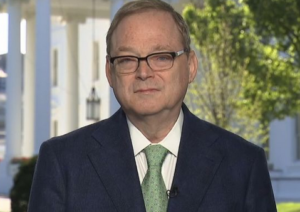Kevin Hassett, the National Economic Council Director, refuted claims of chaos in the Trump administration's economic plans, emphasizing a strategic approach to global trade and domestic industry enhancement through initiatives like the Reciprocal Trade Act, with negotiations underway involving 130 countries.**
**Hassett Defends Trump’s Economic Strategy as Deliberate and Impactful**

**Hassett Defends Trump’s Economic Strategy as Deliberate and Impactful**
**National Economic Council Director argues for a high-speed, robust trade agenda aiming to boost American industry.**
National Economic Council Director Kevin Hassett strongly countered assertions claiming that the Trump administration's economic strategy is disorganized, stating in an interview on CNN’s State of the Union that the White House is instead executing a deliberate and aggressive plan to transform global trade while reinforcing American industry.
Using a football metaphor, Hassett likened the Trump administration to a team employing a “two-minute offense,” rapidly implementing policies that range from tax incentives to deregulation and assertive trade reform.
Central to this initiative is the Reciprocal Trade Act, which Hassett argued addresses a pressing national need: the country's excessive dependence on foreign goods—a vulnerability particularly exposed during times of conflict.
He noted that negotiations are currently taking place with 130 nations, who are responding to the Trump administration's proposal: treat U.S. goods with the same tax structure you apply to your exports, which could potentially lower tariffs to as low as 10% for many American products.
Hassett acknowledged that while discussions with China are still in the early stages, other countries are actively pursuing fair trade agreements with the U.S. "It’s systematic, it’s transparent, and nations are presenting substantial proposals," he remarked.
With critics scrutinizing the pace and trajectory of Trump's international strategy, Hassett's message was unambiguous: the approach is not a state of chaos but rather one of calculated urgency, asserting that the U.S. is finally taking a proactive role in a global economic arena it has often struggled to navigate.






















